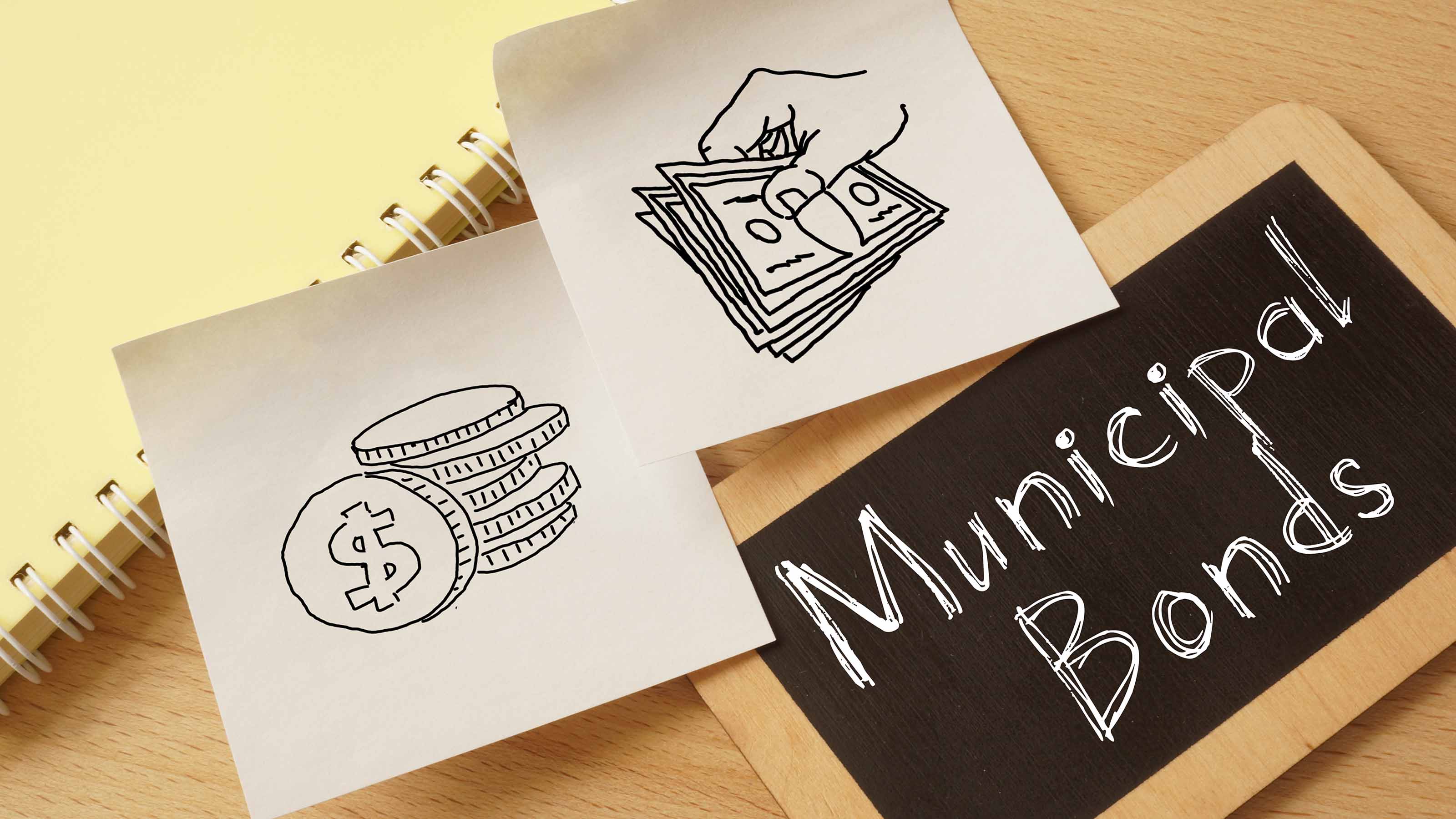Investing Lessons for Income Seekers
Here are the shiniest pearls of income-investing wisdom senior editor Jeff Kosnett has collected while penning his 100 columns.

Profit and prosper with the best of Kiplinger's advice on investing, taxes, retirement, personal finance and much more. Delivered daily. Enter your email in the box and click Sign Me Up.
You are now subscribed
Your newsletter sign-up was successful
Want to add more newsletters?

Delivered daily
Kiplinger Today
Profit and prosper with the best of Kiplinger's advice on investing, taxes, retirement, personal finance and much more delivered daily. Smart money moves start here.

Sent five days a week
Kiplinger A Step Ahead
Get practical help to make better financial decisions in your everyday life, from spending to savings on top deals.

Delivered daily
Kiplinger Closing Bell
Get today's biggest financial and investing headlines delivered to your inbox every day the U.S. stock market is open.

Sent twice a week
Kiplinger Adviser Intel
Financial pros across the country share best practices and fresh tactics to preserve and grow your wealth.

Delivered weekly
Kiplinger Tax Tips
Trim your federal and state tax bills with practical tax-planning and tax-cutting strategies.

Sent twice a week
Kiplinger Retirement Tips
Your twice-a-week guide to planning and enjoying a financially secure and richly rewarding retirement

Sent bimonthly.
Kiplinger Adviser Angle
Insights for advisers, wealth managers and other financial professionals.

Sent twice a week
Kiplinger Investing Weekly
Your twice-a-week roundup of promising stocks, funds, companies and industries you should consider, ones you should avoid, and why.

Sent weekly for six weeks
Kiplinger Invest for Retirement
Your step-by-step six-part series on how to invest for retirement, from devising a successful strategy to exactly which investments to choose.
This is my 100th “Cash in Hand” column, counting those that have run in the magazine and those that have appeared only on the Web (see them all). I’d like to mark this milestone by passing on some of the wisdom I’ve accumulated while observing and decoding the world of income investing.
The single most important lesson I’ve learned is that when it comes to income securities, something is always working somewhere. By working, I mean paying dividends or interest on time without causing life-altering losses of principal. The closest we came to a total wipeout was during the 2008 financial crisis. But even then, Treasury bonds and securities backed by the Government National Mortgage Association provided refuge.
I know some of you aren’t interested in oil-and-gas trusts or foreign bonds. You pine for the days when certificates of deposit paid 8% or you could gather the down payment for a house by feeding a money market fund. (I did that 30 years ago!) But those times aren’t coming back anytime soon. The Fed has vowed to keep interest rates low until the tepid U.S. economy picks up steam, and banks have no reason to pay more to attract deposits. A major pickup in inflation isn’t in the cards. So to bring in cash, it pays to learn about and get comfortable with an ever-wider array of investments—sometimes nontraditional ones. That’s what “Cash in Hand” is all about.
From just $107.88 $24.99 for Kiplinger Personal Finance
Become a smarter, better informed investor. Subscribe from just $107.88 $24.99, plus get up to 4 Special Issues

Sign up for Kiplinger’s Free Newsletters
Profit and prosper with the best of expert advice on investing, taxes, retirement, personal finance and more - straight to your e-mail.
Profit and prosper with the best of expert advice - straight to your e-mail.
I said I would offer some useful observations. Here goes:
Ignore prophets of doom. No one has harmed income-seeking investors more than rabble-rousing commentators and analysts. From Meredith Whitney predicting a wave of municipal-bond defaults to the demagogues who vilify dollar-denominated assets because they think the buck is headed for oblivion, these permanent pessimists are inevitably wrong.
The best way to build wealth is with a dividend-growth strategy. When you invest in stocks, it’s not always about finding the highest yielders. Even if a stock yields little today, you’ll eventually pull in double-digit income on your purchase price if the company raises its dividends by 10% year after year.
Don’t restrict yourself to funds. Once you’ve boned up on bonds—and especially if you hold some bond funds already—don’t be afraid to add some individual securities. You will save on fund costs and, because you can hold a bond to maturity, you won’t have to worry about interim price swings. And you needn’t fret about what a fund manager does or whether money is flowing out of or into a fund at the wrong time.
For income, Treasury bonds are lame. Starting in 2008, their role has evolved from providing income to being the world’s lockbox. That’s why ten-year Treasuries still yield only 1.7% four years after the Great Recession ended. Bondholders are willingly forgoing income in return for the comfort provided by Uncle Sam’s “full faith and credit.” My main objection to Treasuries isn’t that you’ll lose money if interest rates rise; it’s that their yields are inadequate for your purposes.
Municipal bonds rock. Investors may be overpaying for Treasuries, but they clearly don’t trust states and municipalities. As a result, after-tax yields on muni bonds are far more generous than those of many comparable taxable bonds. But most states and local governments are not in bad shape, and Congress will not invalidate the muni-bond tax exemption. Take all due advantage.
I’ve made some bloopers. In January 2011, I said sell health care real estate investment trusts because of a negative analyst’s report. Since then, health REITs have delivered fine results. There’s nothing I’ve written in these columns that I regret more.
Profit and prosper with the best of Kiplinger's advice on investing, taxes, retirement, personal finance and much more. Delivered daily. Enter your email in the box and click Sign Me Up.

Kosnett is the editor of Kiplinger Investing for Income and writes the "Cash in Hand" column for Kiplinger Personal Finance. He is an income-investing expert who covers bonds, real estate investment trusts, oil and gas income deals, dividend stocks and anything else that pays interest and dividends. He joined Kiplinger in 1981 after six years in newspapers, including the Baltimore Sun. He is a 1976 journalism graduate from the Medill School at Northwestern University and completed an executive program at the Carnegie-Mellon University business school in 1978.
-
 Over 65? Here's What the New $6K Senior Bonus Deduction Means for Medicare IRMAA
Over 65? Here's What the New $6K Senior Bonus Deduction Means for Medicare IRMAATax Breaks A new tax deduction for people over age 65 has some thinking about Medicare premiums and MAGI strategy.
-
 U.S. Congress to End Emergency Tax Bill Over $6,000 Senior Deduction and Tip, Overtime Tax Breaks in D.C.
U.S. Congress to End Emergency Tax Bill Over $6,000 Senior Deduction and Tip, Overtime Tax Breaks in D.C.Tax Law Here's how taxpayers can amend their already-filed income tax returns amid a potentially looming legal battle on Capitol Hill.
-
 5 Investing Rules You Can Steal From Millennials
5 Investing Rules You Can Steal From MillennialsMillennials are reshaping the investing landscape. See how the tech-savvy generation is approaching capital markets – and the strategies you can take from them.
-
 What Fed Rate Cuts Mean For Fixed-Income Investors
What Fed Rate Cuts Mean For Fixed-Income InvestorsThe Fed's rate-cutting campaign has the fixed-income market set for an encore of Q4 2024.
-
 The Most Tax-Friendly States for Investing in 2025 (Hint: There Are Two)
The Most Tax-Friendly States for Investing in 2025 (Hint: There Are Two)State Taxes Living in one of these places could lower your 2025 investment taxes — especially if you invest in real estate.
-
 The Final Countdown for Retirees with Investment Income
The Final Countdown for Retirees with Investment IncomeRetirement Tax Don’t assume Social Security withholding is enough. Some retirement income may require a quarterly estimated tax payment by the September 15 deadline.
-
 Dividends Are in a Rut
Dividends Are in a RutDividends may be going through a rough patch, but income investors should exercise patience.
-
 Why Investors Needn't Worry About U.S. Credit Downgrade
Why Investors Needn't Worry About U.S. Credit DowngradeFitch Ratings The United States saw its credit rating downgraded for just the second time in history, but experts aren't worried about the long-term damage to stocks.
-
 Municipal Bonds Stand Firm
Municipal Bonds Stand FirmIf you have the cash to invest, municipal bonds are a worthy alternative to CDs or Treasuries – even as they stare down credit-market Armageddon.
-
 High Yields From High-Rate Lenders
High Yields From High-Rate LendersInvestors seeking out high yields can find them in high-rate lenders, non-bank lenders and a few financial REITs.
-
 Time to Consider Foreign Bonds
Time to Consider Foreign BondsIn 2023, foreign bonds deserve a place on the fringes of a total-return-oriented fixed-income portfolio.